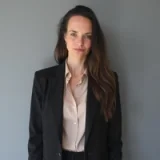
Me & Autism: Building a Space That Says Yes

Who I Am
I am Dr. Jilleun Tenning—a clinical counsellor, the founder of InFocus Counselling, and a proudly neurodivergent woman. I am Autistic. I have ADHD. These identities are not incidental details—they are central to my lived experience. They inform the way I process the world, build relationships, work with clients, and lead a team. They also shaped my earliest—and most painful—interactions with the healthcare, educational systems and humans.
Growing Up in Systems Not Meant for Me
For most of my life, I have navigated environments that were never designed for people like me. Systems that only accepted difference when it was invisible, polite, or easy to manage. Spaces that tolerated my presence so long as I could minimize my needs. And like many neurodivergent people, I learned to internalize this. I learned to mask my distress, to excel enough to deflect scrutiny, and to push myself beyond my limits to maintain an illusion of coping. But survival is not the same as belonging.
The Cost of Being Misunderstood
In Canada, an estimated 1 in 50 children (2%) are diagnosed with Autism Spectrum Disorder (ASD), and among them, approximately 36.5% also have ADHD. Globally, research suggests that 25–32% of autistic people have co-occurring ADHD, and more than 80% of Autistic adults experience at least one additional mental health condition over their lifetime.
Despite this, misdiagnosis and late diagnosis remain common—especially for women, gender-diverse people, and individuals who present in ways that fall outside of stereotypical clinical frameworks. A 2022 study found that more than 24% of Autistic adults reported being misdiagnosed with a psychiatric condition before receiving their autism diagnosis, with rates even higher among women and nonbinary people.
Why I Created InFocus
I created InFocus because I was tired of seeing neurodivergent people being told “no” before anyone took the time to understand them.
No, you’re not impaired enough.
No, your distress doesn’t look the way we expect.
No, your story doesn’t fit within our diagnostic rubric.
No, we can’t help you.
These refusals—sometimes explicit, sometimes disguised in clinical neutrality—are deeply harmful. They reinforce shame, self-doubt, and the belief that we must bend ourselves to fit into systems that will not bend for us.
A Moment That Changed Everything
In a previous job, I was once asked by a director, “How do you affect the floor?” I answered honestly: “I don’t believe I make things worse.” But that wasn’t the response they wanted.
What followed was a reminder of my place as someone with a “pervasive developmental disorder.” I was subtly but unmistakably reminded that my difference was being tolerated, not embraced.
That moment was not about feedback. It was about control.
It was a reminder that inclusion, in many places, is conditional.
What InFocus Stands For
InFocus is my answer to all of these experiences. It is not just a clinic—it is a counter-narrative. A space deliberately created to affirm, empower, and support neurodivergent individuals in a world that too often demands their silence.
Here, we don’t ask “What’s wrong with you?” We ask, “What hasn’t been understood or supported yet?” We recognize that the problem is not within the person, but in the lack of accommodations, compassion, and respect they’ve received.
A Culture of Real Support
One of the most radical things I have done as a clinician and leader is build a team that allows me to show up fully. At InFocus, I don’t have to mask. I don’t have to apologize for needing quiet time, for pacing during meetings, for taking longer to process verbal input, or for leaning on written communication.
My team sees me not as someone to fix, but as someone worthy of support. They notice when I’m struggling before I say a word. They offer care before I have to ask.
They normalize support so thoroughly that I don’t waste energy trying to “deserve” it.
For Those Who Have Wondered Why It’s So Hard
If you have spent your life wondering why everything feels harder than it should—why relationships, rest, work, or even basic routines seem to demand more energy than you can give—I want you to hear this:
You are not broken.
You are not too much.
You are not a problem to solve.
You have adapted to a world that was not built for your brain, your body, or your way of being—and you have survived. That is extraordinary.
But you deserve more than survival. You deserve care without conditions. You deserve support that sees you fully and believes you immediately. You deserve to belong.
We Say Yes
At InFocus, we say yes.
Yes to your truth.
Yes to your needs.
Yes to being met where you are, not where someone else thinks you should be.
We say yes because we have lived the no.
And we are building something better.
Dr. Jilleun Tenning
Founder | Counsellor | Neurodivergent Advocate
Empowering Minds. Embracing Difference.
Share this story
About the Author

Dr. Jilleun Tenning, PhD
Founder, Counsellor, InFocus Counselling
Jilleun is a highly skilled clinical counsellor with over 15 years of experience specializing in ADHD, neurodivergence, and the complex challenges that often accompany them. Drawing from her own lived experience of neurodiversity, she offers clients a unique and deeply empathetic perspective that combines professional expertise with authentic understanding. Jilleun is committed to creating a neuroaffirmative, compassionate space where individuals can explore their experiences, develop empowering skills, and fully embrace their strengths.
